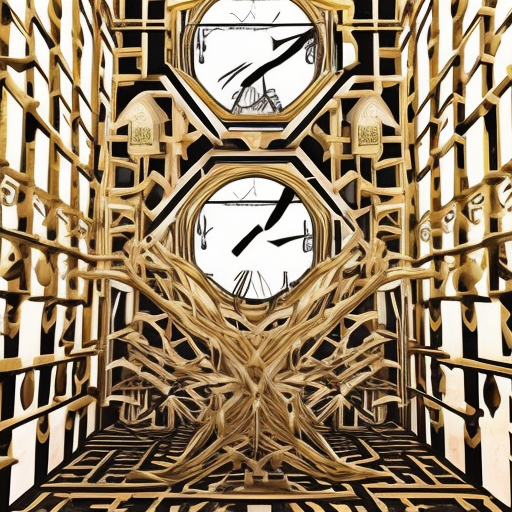The Exterminating Angel by Luis Buñuel: A Surreal Exploration of Social Conventions
Main Cast and Crew:
- Director: Luis Buñuel
- Writers: Luis Buñuel, Luis Alcoriza
- Key Actors: Silvia Pinal as Leticia “La Valkiria”, Enrique Rambal as Edmundo Nóbile, Claudio Brook as Julio, José Baviera as Raúl, Augusto Benedico as Lucas, Antonio Bravo as Enrique, Jacqueline Andere as Leonora
- Music Director: Raúl Lavista
- Director of Photography: Gabriel Figueroa
- Producers: Gustavo Alatriste, Sergio Kogan
The Exterminating Angel is a surreal masterpiece directed by Luis Buñuel. The film follows a group of high society guests who find themselves mysteriously unable to leave a dinner party, trapped in a luxurious mansion.
The plot unfolds as the guests, including Leticia, Edmundo, Julio, Raúl, Lucas, Enrique, and Leonora, gather for a post-opera dinner. However, as the evening progresses, a strange phenomenon occurs: the guests become inexplicably unable to leave the mansion. Despite their efforts, they find themselves trapped within the confines of the house, cut off from the outside world.
As time passes, the guests’ behavior becomes increasingly irrational and desperate. They turn on each other, revealing their true selves and succumbing to their primal instincts. The once-civilized gathering descends into chaos and madness, with the guests resorting to violence, indulging in bizarre rituals, and even contemplating cannibalism.
Buñuel’s film is a scathing critique of societal conventions and the bourgeoisie. The mansion becomes a microcosm of society, where the guests are trapped by their own social expectations and inability to break free from their roles. The film explores themes of class, power dynamics, and the fragility of social order.
The Exterminating Angel was met with mixed reactions upon its release in 1962. Some critics praised its surrealistic approach and biting social commentary, while others found it perplexing and nonsensical. Despite the initial divided reception, the film went on to win the Best Director award at the 1962 Cannes Film Festival.
Over the years, The Exterminating Angel has gained recognition as a seminal work of surrealism and a masterpiece of world cinema. Its influence can be seen in subsequent films that explore similar themes of societal constraints and the breakdown of social order.
For viewers who appreciate thought-provoking and unconventional cinema, The Exterminating Angel is a must-watch. Buñuel’s surrealistic style and biting social commentary make this film a unique and unforgettable experience.
Memorable Quote:
“We’re all prisoners, but some of us are in cells with windows and some without.”












